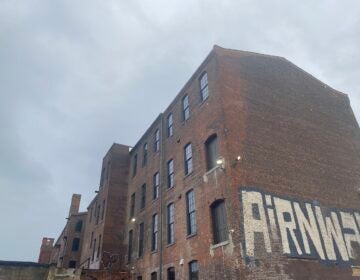City should not have issued riparian rights
April 10
By Kellie Patrick Gates
For PlanPhilly
The City of Philadelphia now says it never had the power to grant SugarHouse Casino the right to build on the submerged lands of the Delaware River.
“We weighed all of the information and circumstances in this case, and we didn’t have the power to issue the license,” said Terry Gillen, senior advisor to Mayor Michael Nutter.
The City’s new position adds another twist to the already complicated testimony set to be presented to the state Supreme Court during oral arguments on Tuesday. The session is part of a lawsuit filed against the city by City Council and a group of local state legislators who say that only the General Assembly has the power to grant a license to SugarHouse.
Now, the respondent agrees with the petitioners.
“The city and the state agree,” said Mary Isaacson, spokeswoman for Rep. Michael O’Brien, one of the river ward legislators who filed the lawsuit. It’s up to the Court to reaffirm the law, Isaacson said, and so its decision should not be influenced by the city’s changed position, nor by any party’s position. Still, she said, the change makes the original lawsuit a moot point. “The only party now that has an issue is the intervener.”
That would be SugarHouse. And the city’s new position does not affect the Casino’s stance, said spokeswoman Leigh Whitaker. “We believe that the City has the authority to issue the license,” she said.
The lawsuit stems from a Nov. 27 decision made by Philadelphia’s Commerce Department and its then-director, Stephanie Naidoff. In recent decades, riparian rights for a project like SugarHouse have only been granted through the state legislature. But no legislator was willing to introduce a bill for SugarHouse.
So SugarHouse’s attorneys found a 1907 state law which they said gave the city’s commerce department the power to grant riparian rights within the city limits. The John Street administration – which favored casinos as a source of tax relief and economic development for the city – agreed with SugarHouse’s interpretation, and that cleared the way for the hearing.
O’Brien, Rep. Bill Keller, Sen. Vince Fumo and other legislators disagreed, saying that the 1978 Dam Safety and Encroachments Act gave the legislature the sole authority to grant riparian rights for a project like SugarHouse and nullifies the 1907 law. Other legislators took notice of the situation in Philadelphia, and passed legislation re-affirming the General Assembly’s authority.
Shortly after Mayor Michael Nutter took office, he rescinded SugarHouse’s submerged lands permit. Until last week, the Nutter administration maintained that the city had the power to grant riparian rights to SugarHouse, but that the procedure that resulted in a permit was flawed.
The city asked the Supreme Court to dismiss the lawsuit, since the permit had been revoked, but the court denied that request.
And SugarHouse filed documents arguing that one administration cannot take back the actions of its predecessor simply because it does not agree with them. (Nutter does not think either of the two casinos proposed for Philadelphia should be built along the waterfront.)
The Court called for Tuesday’s oral arguments to help it determine both where the power to issue riparian rights lies, and, if the city had the right to grant SugarHouse a permit, did it also have the right to revoke it.
While the city now agrees with the legislators that it did not have the right to grant SugarHouse a permit, “we’re not prepared to say that the city has no riparian rights” authority in other situations, Gillen said.
Isaacson said that the granting power lies with the legislature, but the legislature can give it to another body in a specific circumstance. Penn’s Landing Corporation, for example, can grant licenses without conferring with the legislature on some property, she said. And the City may be able to permit the repair of an existing pier, she said, but “the city doesn’t have the right for private development.”
This ability of the legislature to grant another body the power to issue a permit is at the heart of SugarHouse’s argument. “The 1907 law gave the City the express authority to issue said licenses,” she wrote in an email. “We have never argued that ONLY the City had the authority to issue the license, but that the City’s authority was expressly granted to it by an act of the general assembly. That authority is still in effect.”
Christopher Craig, an attorney in Fumo’s office who has a key role in the legal battle over riparian rights, said that the Dam Safety and Encroachments Act revoked the authority the legislature gave the city back in 1907. But even if that were not the case, he said, the intent of the 1907 law was to give the city the power to regulate shipping, and it would not apply to a casino.
Contact the reporter at kelliespatrick@gmail.com
WHYY is your source for fact-based, in-depth journalism and information. As a nonprofit organization, we rely on financial support from readers like you. Please give today.






